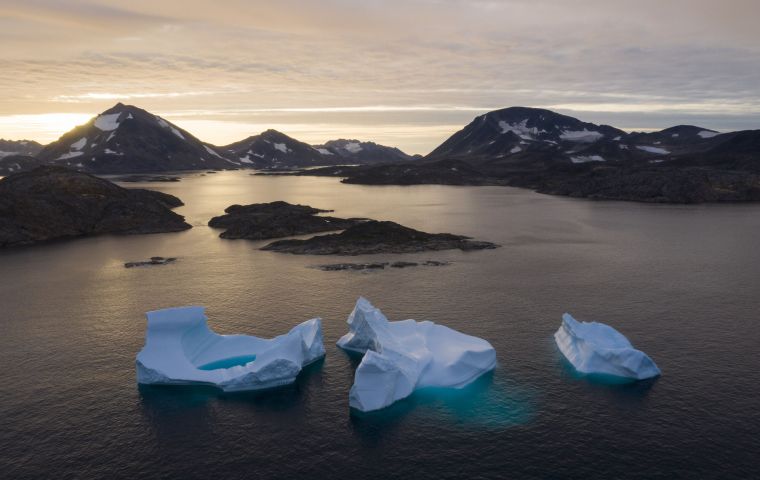MercoPress. South Atlantic News Agency
Study shows Greenland ice melting might become irreversible soon
 “There will be significantly more melting in the future,” researchers predict.
“There will be significantly more melting in the future,” researchers predict. A new study released Monday by the German Potsdam Institute for Climate Impact Research (PIK) has warned that due to the rising temperatures, the destabilization of icy central-western areas of Greenland has already begun and that melting could then continue in the current global warming scenario.
“We have found evidence that the central-western part of the Greenland Ice Sheet has destabilized,” explained PIK scientist Niklas Boers. “Our results suggest that there will be significantly more melting in the future - which is very worrying.”
The team of German and Norwegian has established that the cause for this phenomenon was feedback effects, whereby the warming of the ice sheet progresses faster when its height decreases.
To prevent melting, not only would the warming be stopped, but the temperatures would have to drop well below the pre-industrial level in order to return to the ice sheet height of the past centuries.
“In practice, the current and expected mass loss of the ice shortly will be largely irreversible,” explained Boers. “It is, therefore, time we reduced greenhouse gas emissions from burning fossil fuels quickly and significantly stabilize the ice sheet and our climate again.”
According to previous model results, according to PIK, the melting of the Greenland ice sheet is inevitable from a critical threshold of the global mean temperature of 0.8 to 3.2 degrees Celsius above the pre-industrial level.
Once this threshold is crossed, the entire ice sheet could melt completely over hundreds or thousands of years, leading to a global sea-level rise of more than seven meters and a collapse of the Atlantic meridional overturning circulation (AMOC) which accounts for for the relative heat in Europe and North America.




Top Comments
Disclaimer & comment rulesCommenting for this story is now closed.
If you have a Facebook account, become a fan and comment on our Facebook Page!